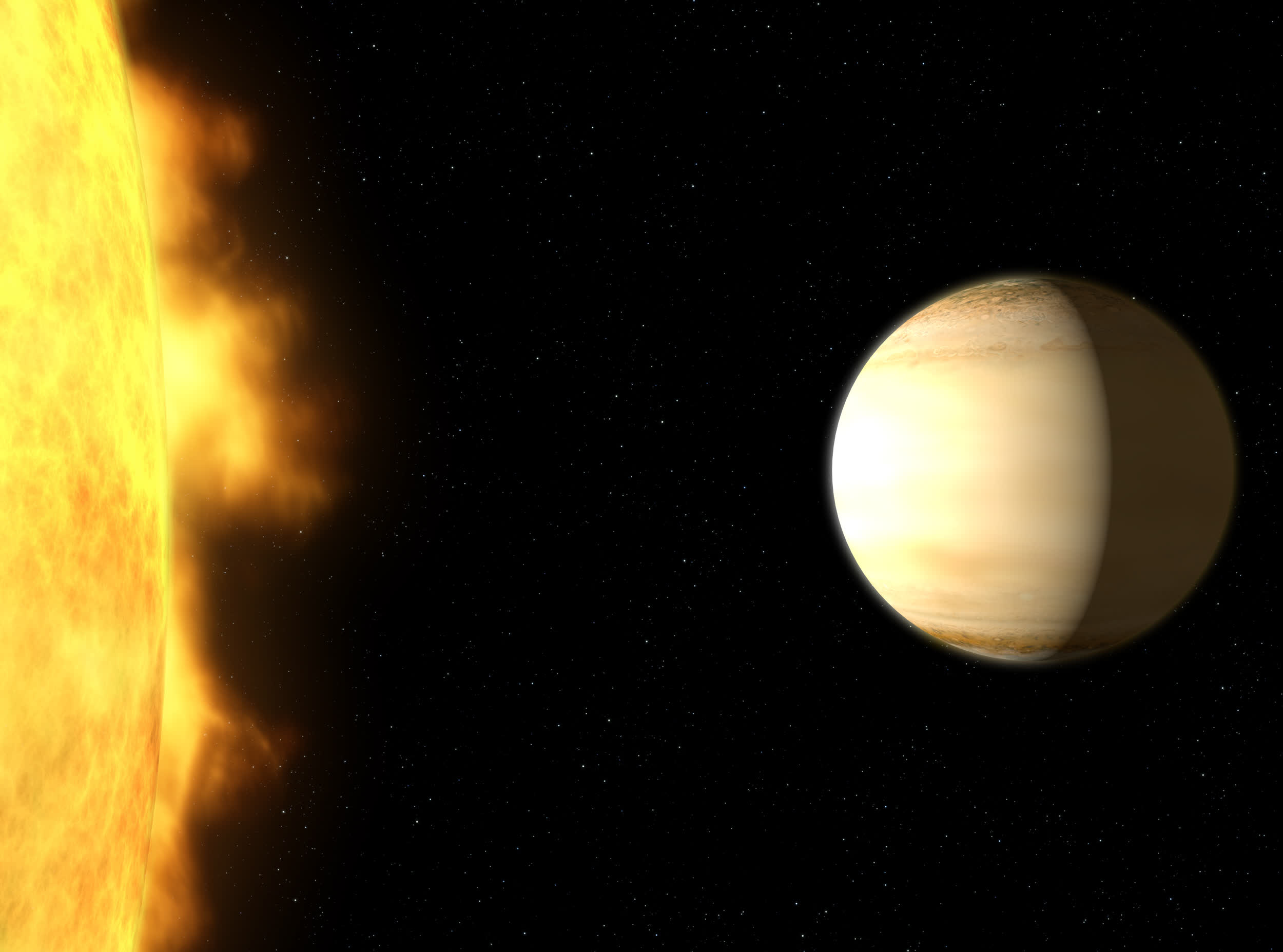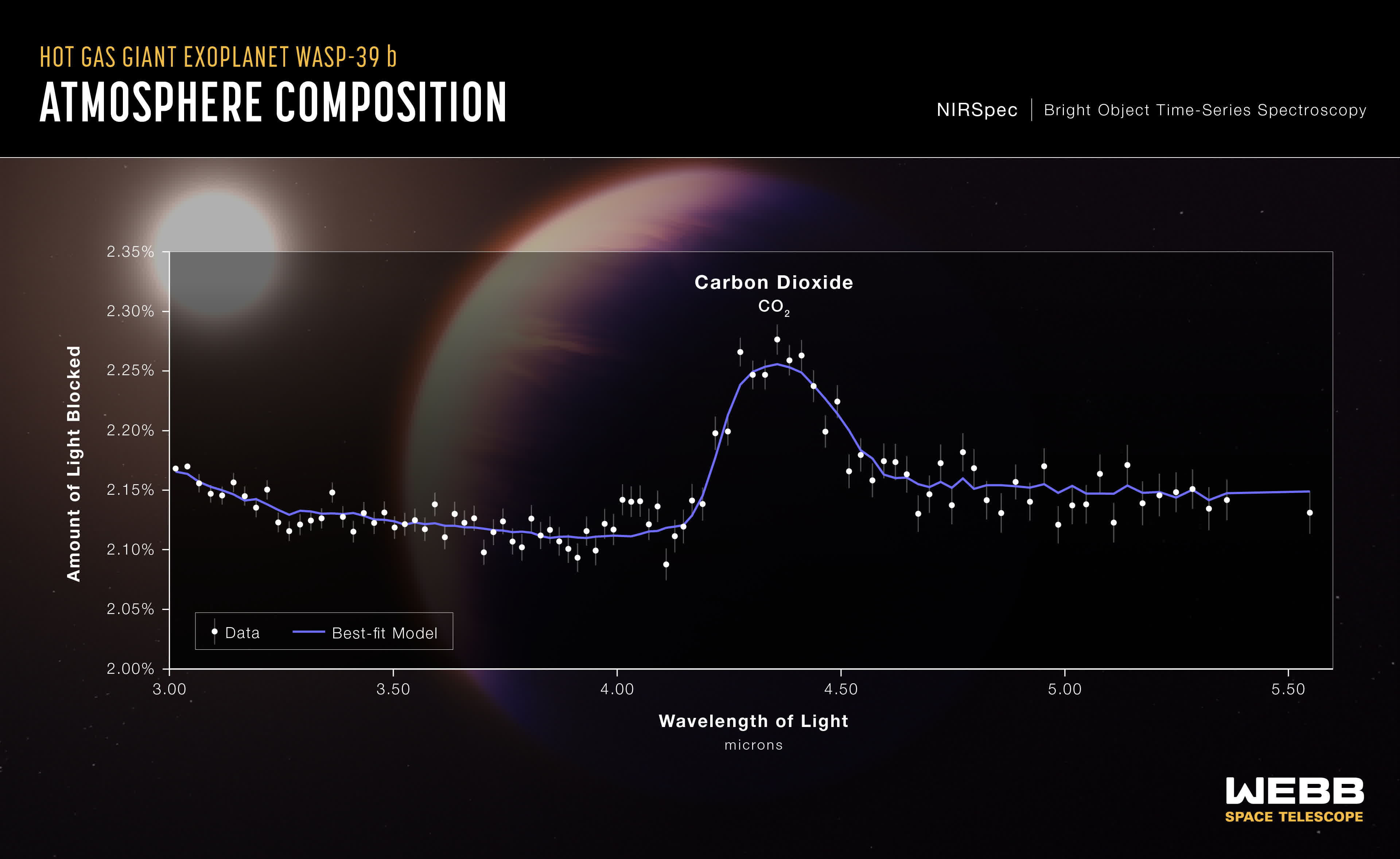What just happened? The James Webb Space Telescope has detected the presence of carbon dioxide in the atmosphere of an exoplanet 700 light-years from Earth. The discovery marks the first time carbon dioxide has been observed on a planet outside of our solar system.

WASP-39 b is a gas giant with a mass roughly one-quarter that of Jupiter and a diameter 1.3 times greater than Jupiter. It is toasty, too, with a temperature of around 1,600 degrees Fahrenheit thanks in part to the fact that it orbits very close to its star – about one-eighth the distance between Mercury and the Sun, or around 4.5 million miles away.
Previous observations using NASA's Hubble and Spitzer space telescopes confirmed the presence of sodium, potassium and water vapor in the planet's atmosphere. Webb's Near-Infrared Spectrograph (NIRSpec) tool was used to observe WASP-39b as it passed in front of its star.
As the planet passes in front of the star, some of the light from the star is transmitted through its atmosphere. Different gases absorb different combinations of colors, and analyzing these changes across a spectrum of wavelengths allows researchers to determine exactly what a planet's atmosphere is comprised of.
"As soon as the data appeared on my screen, the whopping carbon dioxide feature grabbed me," said Zafar Rustamkulov, a graduate student at Johns Hopkins University and member of the JWST Transiting Exoplanet Community Early Release Science team. "It was a special moment, crossing an important threshold in exoplanet sciences."
It takes just over four Earth-days for WASP-39 b to orbit its star. These frequent transits make it an ideal candidate for transmission spectroscopy.
Natalie Batalha of the University of California at Santa Cruz, who leads the team, said detecting such a clear signal of carbon dioxide on WASP-39 b bodes well for the detection of atmospheres on smaller planets.
Data like this will help researchers better understand the origin of the planet and how it evolved. Mike Line of Arizona State University, another member of the research team, said that by measuring carbon dioxide specifically, they can determine the ratio of solid versus gaseous material that was used to form the planet.
https://www.techspot.com/news/95782-nasa-detects-carbon-dioxide-planet-outside-our-solar.html
